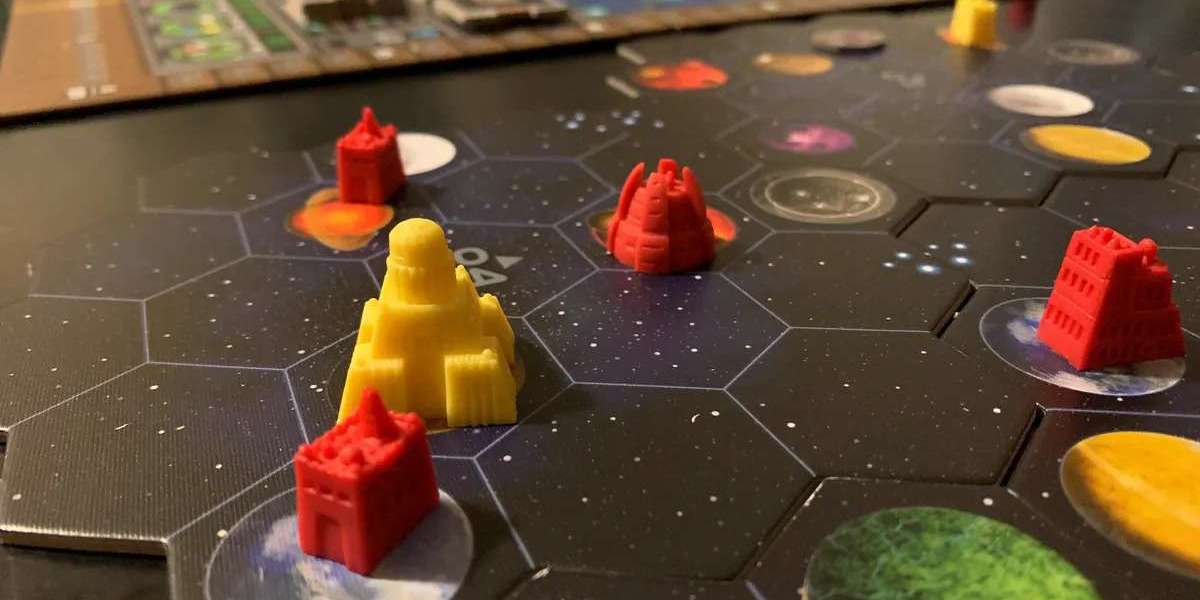In a world increasingly dominated by digital entertainment, there's a charming simplicity and enduring appeal to the tactile pleasure of tabletop games. Whether you're rolling dice, strategizing over a game board, or drawing cards from a deck, tabletop games offer a unique blend of social interaction, strategic thinking, and immersive storytelling. For beginners venturing into this realm, the sheer variety and complexity of table top games can be overwhelming. Fear not, as we embark on a journey to unveil the magic of tabletop games and provide a comprehensive beginner's guide to this captivating hobby.
A) Understanding Tabletop Games:
Tabletop games encompass a broad spectrum of genres, mechanics, and themes, catering to diverse tastes and preferences. From classic board games like Monopoly and Scrabble to immersive role-playing experiences like Dungeons & Dragons, the world of tabletop gaming is rich with possibilities. Here are some common types of tabletop games to consider:
1) Board Games:
These games typically involve a game board and pieces that players manipulate to achieve specific objectives. Examples include Settlers of Catan, Ticket to Ride, and Carcassonne.
2) Card Games:
Card games rely on decks of cards that players use to compete or collaborate with each other. Popular examples include Poker, Magic: The Gathering, and Uno.
3) Dice Games:
Dice games revolve around the rolling of dice to determine outcomes. Yahtzee, Dungeons & Dragons, and Roll for the Galaxy are prime examples.
4) Role-Playing Games (RPGs):
In RPGs, players assume the roles of characters within a fictional setting and embark on adventures guided by a game master. Dungeons & Dragons, Pathfinder, and Call of Cthulhu are iconic examples.
B) Getting Started:
Now that you have a glimpse into the diverse landscape of tabletop gaming, it's time to dive into the practical aspects of getting started:
1) Choose Your Game:
Begin by selecting a tabletop game that aligns with your interests and preferences. Consider factors such as theme, complexity, and the number of players.
2) Learn the Rules:
Every tabletop game comes with a set of rules that govern gameplay. Take the time to read and understand the rules thoroughly before diving into your first game. Many games also offer tutorial videos or beginner-friendly guides to help you grasp the basics.
3) Gather Your Supplies:
Depending on the game you choose, you may need various supplies such as game boards, cards, dice, tokens, or character sheets. Make sure you have everything you need before starting your gaming session.
4) Find Fellow Players:
Tabletop gaming is often a social experience best enjoyed with friends, family, or fellow enthusiasts. Reach out to your social circle or local gaming community to find like-minded individuals interested in joining your gaming sessions.
5) Start Playing:
With your game set up and players assembled, it's time to start playing! Don't worry if you make mistakes or feel unsure initially—learning through gameplay is an integral part of the tabletop gaming experience.
C) Benefits of Tabletop Gaming:
Beyond providing hours of entertainment, tabletop gaming offers a host of benefits for players of all ages:
1) Social Interaction:
Tabletop games foster face-to-face interaction and communication, strengthening bonds between players and promoting teamwork and cooperation.
2) Cognitive Skills:
Many tabletop games require strategic thinking, problem-solving, and decision-making, enhancing cognitive abilities and critical thinking skills.
3) Creativity and Imagination:
RPGs, in particular, encourage players to unleash their creativity and imagination as they inhabit fictional worlds and role-play characters.
4) Stress Relief:
Engaging in tabletop gaming can serve as a therapeutic outlet, offering a reprieve from the stresses of daily life and promoting relaxation and enjoyment.
The Final Words:
As you embark on your tabletop gaming journey, remember that the magic lies not only in the games themselves but in the shared experiences, laughter, and camaraderie they inspire. Whether you're exploring ancient ruins, trading resources, casting spells, or outmaneuvering your opponents, tabletop games offer a world of adventure and discovery waiting to be explored. So gather your friends, roll the dice, and let the magic unfold as you unveil the captivating world of tabletop games.



